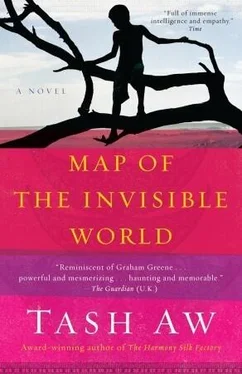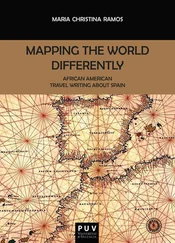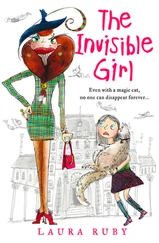Tash Aw - Map of the Invisible World
Здесь есть возможность читать онлайн «Tash Aw - Map of the Invisible World» — ознакомительный отрывок электронной книги совершенно бесплатно, а после прочтения отрывка купить полную версию. В некоторых случаях можно слушать аудио, скачать через торрент в формате fb2 и присутствует краткое содержание. Год выпуска: 2010, Издательство: Spiegel & Grau, Жанр: Современная проза, на английском языке. Описание произведения, (предисловие) а так же отзывы посетителей доступны на портале библиотеки ЛибКат.
- Название:Map of the Invisible World
- Автор:
- Издательство:Spiegel & Grau
- Жанр:
- Год:2010
- ISBN:нет данных
- Рейтинг книги:4 / 5. Голосов: 1
-
Избранное:Добавить в избранное
- Отзывы:
-
Ваша оценка:
- 80
- 1
- 2
- 3
- 4
- 5
Map of the Invisible World: краткое содержание, описание и аннотация
Предлагаем к чтению аннотацию, описание, краткое содержание или предисловие (зависит от того, что написал сам автор книги «Map of the Invisible World»). Если вы не нашли необходимую информацию о книге — напишите в комментариях, мы постараемся отыскать её.
comes an enthralling novel that evokes an exotic yet turbulent place and time—1960s Indonesia during President Sukarno’s drive to purge the country of its colonial past. A page-turning story,
follows the journeys of two brothers and an American woman who are indelibly marked by the past — and swept up in the tides of history.
Map of the Invisible World — читать онлайн ознакомительный отрывок
Ниже представлен текст книги, разбитый по страницам. Система сохранения места последней прочитанной страницы, позволяет с удобством читать онлайн бесплатно книгу «Map of the Invisible World», без необходимости каждый раз заново искать на чём Вы остановились. Поставьте закладку, и сможете в любой момент перейти на страницу, на которой закончили чтение.
Интервал:
Закладка:
“Actually, my father still resembles his image in this photo. Very much so. It’s as if the years have come and gone and not changed anything.”
“Really?”
“I found this picture among his things.”
“He keeps a photo of us — I mean, old photos — on his desk?”
“No, it was in his boxes.”
“Oh.”
“In hunting for clues I violated his privacy, I know, but I was desperate. I found this picture and then also this one—” He produced another photo, this time of Margaret on her own. Her hair was short, much as it was today, only curlier and messier, neatened only slightly by a single clip that pulled the curls off her forehead. She was sitting cross-legged, all gamine elbows and knees; her cheeks were freckled from the sun, her eyes squinting as she pulled a face. She looked impossibly young and happy.
“God, I look like Anne Frank,” she said.
Adam turned the picture over and showed her Karl’s elegant handwriting: Margaret, Ubud, December 1938 . “So I searched some more, looked in his address books and old notebooks and diaries from his time in Bali. He mentions you quite frequently—”
“Really?”
“Yes, so I knew who you were: Margaret Bates.”
“What does he say about me — in the diaries, I mean?”
“I didn’t really read them — I wasn’t prying, you understand, I was just looking for clues. I need to find my father. Well, anyway, I digress. I memorized your name and address at the university. It has taken me nearly a week to reach Jakarta. Luckily I had some money, U.S. dollars. My father had a secret hiding place in case of emergencies. He showed me where it was as soon as I got to the house. No secrets between us, he used to say. So I paid people to drive me. I bought cigarettes and liquor for truck drivers. It was hard. I did not know if you were still alive, if you even existed. Sometimes …” He paused and rubbed his eyes. He looked very tired all of a sudden. “Sometimes, when I was falling asleep on a bus or truck, I wondered if I had just dreamed you up.” He was playing with some breadcrumbs, rolling them between his fingertips until they became tiny sticky balls. “I remembered quite clearly my father speaking of you. Over the years he mentioned this person, ‘Margaret,’ and even though I was small I remember thinking that I would like to meet this American woman who had been my father’s friend.”
Margaret reached across and patted him on his forearm, a somewhat tentative tapping rather than a soothing squeeze. The thin bones on the back of his hand twitched and for an instant Margaret thought he was going to cry. His shoulders were hunched over, making him seem rounded, even fat.
He continued staring at the table and shook his head. “I can’t explain why I have just come to you, and more particularly why I have told you all this.”
Margaret cleared her throat; she felt an odd sensation, something she did not immediately recognize. This boy looked so lost and forlorn and alone that she wanted to reach out to him and cradle him like an infant until he fell asleep. This is crazy, she thought: Surely it couldn’t be a parental urge she was experiencing. He was an adolescent Indonesian male whom she did not know. Earlier she had noticed his eyes; shiny black beads for irises, the whites unnervingly white, not tinged with jaundice like so many other local kids. Her Ability to Analyze had deserted her and she did not know what to do with him.
“It’s very late,” she said at last. “You must get some sleep. We can talk some more tomorrow morning.”
He nodded and then looked at her with his perfect eyes. “Will you help me get my father back?”
Margaret looked down at the rolled-up bits of breadcrumb on the table and nodded. “I want him back too.”
8
M argaret first fell in love with Karl roughly twelve minutes after she set eyes on him. She was fifteen, he twenty-seven. She would fall in love with him several more times over the many years that followed that initial meeting, but those occasions were less precisely recalled, blurred as they were by the various instances of falling out of love with him.
She remembers that first falling in love without any hint of sentimentality or nostalgia. It took her more than ten minutes but less than fifteen to decide that she was in love. She knew this because she checked her watch, which she had been given for her birthday that year and which she loathed, a stupid Mickey Mouse watch, his yellow gloved hands pointing the time (why on earth had her parents chosen such a thing? Didn’t they know her at all?). She also knew that it was not a theatrical coup de foudre (the like of which she would perhaps experience later) nor indeed a surge of primitive lust, but something far more conscious and deliberate. Margaret had simply decided to fall in love. She did not tumble helplessly into schoolgirl hysterics; she experienced no shortness of breath or palpitations or any of the more vulgar symptoms often associated with falling in love. At fifteen, she was already capable of making such decisions.
They met at the local Barong dance, catching each other’s eye for a brief moment, Karl acknowledging her presence with a quick, shy nod, as if deferring to a more established member of an invisible hierarchy. Margaret responded by waving from across the bare dirt clearing where the dance was to take place. She continued to observe him for the duration of the event, noticing at once that he had the look of someone who had just arrived in Bali, someone struck by all the misty-eyed beauty of this fabled Eden. The symptoms were clear: the sudden serenity of expression; the inability to speak, to express oneself adequately because one did not have the vocabulary to capture what one saw or felt; the slowed-down walk that imitated the Balinese, conscious of the lack of grace in the Western posture.
His sand-colored hair fell across his forehead and made him look adolescent, timid, and slightly lost. He sat cross-legged in the dirt, like the locals, his sarong (yes, he already had one) tucked neatly into his lap. He watched intently as the music started, piercing, discordant, eerie: notes and rhythms that could not be understood by the Western ear. There were cymbals, gongs, bells, and, most of all, the heavy drumming that surged and ebbed without pause. Fantastic figures appeared, shrieking horribly, their faces shrouded by masks inhuman and terrifying. Karl did not blink, not even once. He looked helpless, as if he had stumbled into an unknown world where nothing made sense, where he was a child once more. Margaret felt a sudden surge of something she had never felt before. Analyzing this feeling afterward, she would conclude that it was a combination of many things: feelings of superiority, of experience, of wanting to be a guide, a teacher; wanting to gather something vulnerable in her arms and nurse it to health; the urge to be physically close to something warm and clear and soft. She looked at her watch: It had been ten minutes since she had first spotted him.
The dancers, all male, clad in traditional white sarongs, began to stab at themselves with their kiris , some of them falling on the ground, writhing in pain; others bent over double, shivering, the wavy blades pressed firmly against their chests. Their muscles were strained, sinewy, their skin slick with sweat. Their eyes were wide and hollow and some of them were crying; as ritual dictated, they had slipped into a trance. The air was filled with tortured groans, an immense demonic anguish. Margaret giggled. Karl was perspiring intensely, his expression beginning to match that of the dancers, at once empty and furious, like a child recently woken from sleep. She wanted to hold him and stroke his hair and assure him that it was all a dream, a bad, cheap, silly dream that didn’t mean anything.
Читать дальшеИнтервал:
Закладка:
Похожие книги на «Map of the Invisible World»
Представляем Вашему вниманию похожие книги на «Map of the Invisible World» списком для выбора. Мы отобрали схожую по названию и смыслу литературу в надежде предоставить читателям больше вариантов отыскать новые, интересные, ещё непрочитанные произведения.
Обсуждение, отзывы о книге «Map of the Invisible World» и просто собственные мнения читателей. Оставьте ваши комментарии, напишите, что Вы думаете о произведении, его смысле или главных героях. Укажите что конкретно понравилось, а что нет, и почему Вы так считаете.












